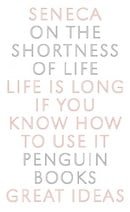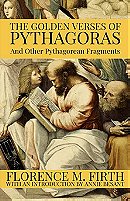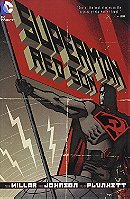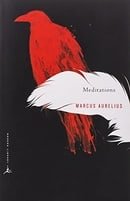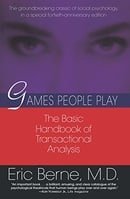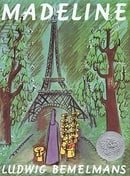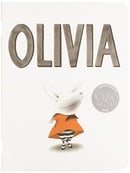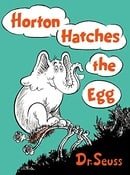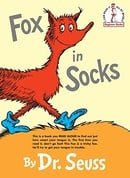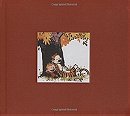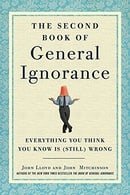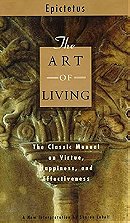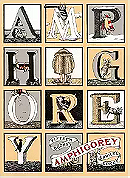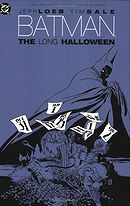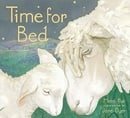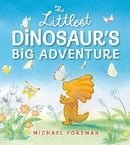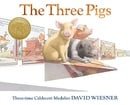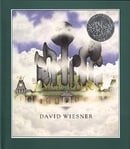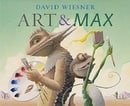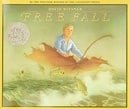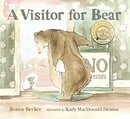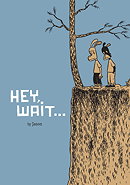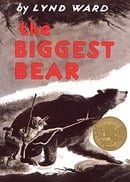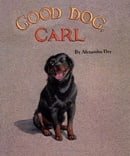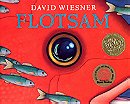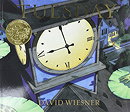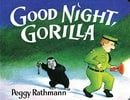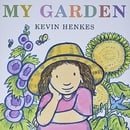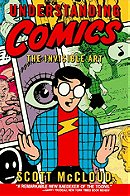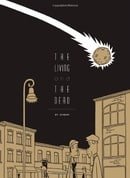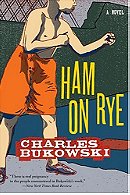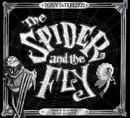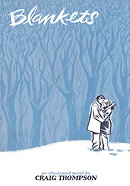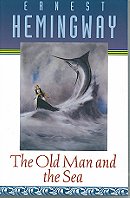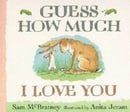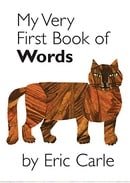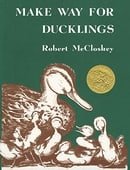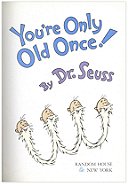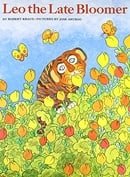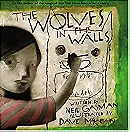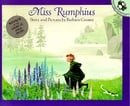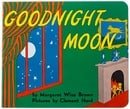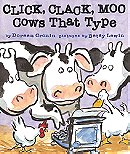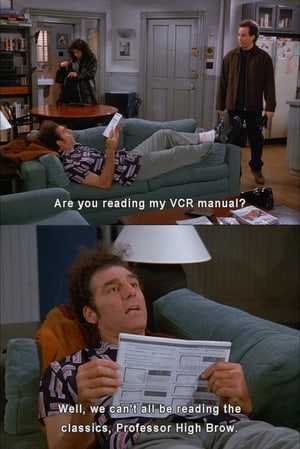Reading Journal
Sort by:
Showing 1-50 of 110
Rating:
List Type:
 Add items to section
Add items to section
Completed in 2013
I read many mostly children's books not on Listal.
“Learning how to think" really means learning how to exercise some control over how and what you think.
It means being conscious and aware enough to choose what you pay attention to and to choose how you construct meaning from experience.
Because if you cannot or will not exercise this kind of choice in adult life, you will be totally hosed.
Wallace understands unhappiness stems from contempt, alienation, and not recognizing our biases.
(It's an obvious axiom, but a life in complete isolation isn't worth living; there must be some empathy and meaning. Instead of seeing everything else but me as the outside world, I should remind myself I belong too. Like Marcus Aurelius said, "[you were born into society]".)
Mr. Saturn's rating:


Seneca is prone to ramble about the things he hates and gets pretty haughty, especially in contrast to the sublime, economical writing of Marcus Aurelius and Epictetus; they cover virtually all his salient points, except my favorite point, '[through education we choose our parents'].
Mr. Saturn's rating:


The golden verses of Pythagoras - Pythagoras
Instead of being spouting weird cult dogma, Pythagoras has really great advice and influenced the stoics. I should read this short read again.
Mr. Saturn's rating:


Meditations: A New Translation - Marcus Aurelius
Keep in mind how fast things pass by and are gone – those that are now, and those to come. Existence flows past us like a river: the “what” is in constant flux, the “why” has a thousand variations. Nothing is stable, not even what’s right here. The infinity of past and future gapes before us – a chasm whose depths we cannot see. So it would take an idiot to feel self-importance or distress. Or any indignation, either. As if the things that irritate us lasted.
Marcus' Aurelius advice to himself seemed brutally ascetic and cold at first glance; as I read on, I realized his philosophy is radiant, noble, and kind. He believes solace comes from within, from nature, and acting in accord with nature e.g. an unlearned person would retaliate against a 'bad' person, instead of being kind and disabusing them of their wrong beliefs. He understood everyone's duty in life is to be kind, even if 'we're just atoms' ('what's bad for the beehive is bad for the bee' 'we're born into society'). Marcus Aurelius understood one can have a peak experience anywhere, anytime, with anyone, without becoming vulnerable.
He's my hero.
Mr. Saturn's rating:


Playing duplicitous games (having dishonest and indirect conversation) is more pervasive and alluring than one might first think. Berne notes negative strokes (i.e. interaction) is better than nothing; people choose indignation because the complementary interaction reaffirms their existential position; the gimmick, or the hook to get someone into the game, is essentially an invitation.
Yet, people can be safe by not playing games. Better yet, there's antithetical moves to disabuse the instigator, or just make it clear, 'We're not playing your game. Your game is flawed. Reexamine yourself or go away.'
This knowledge is a huge time saver, and I'd recommend giving this book at least a glimpse.
------------------------------------------------
Old notes.
Transnational analysis and stoicism revealed to me I was not being played by exploitative games, I chose to play reprehensible games because I felt the insult from not responding outweighed the harm of playing. Epictetus said blaming others is ill-informed, blaming oneself is learning, and blaming no-one shows one's education is finished. Blame and resentment invariably leads to harboring ill-will, and perpetrating these games.
I hope this knowledge wards me from playing bad games, and helps me approach the adult (i.e. neutral) and good games well.
Mr. Saturn's rating:


Madeline - Ludwig Bemelmans
The impressionist influenced sketches are remarkable, but the story isn't.
Mr. Saturn's rating:


Horton Hatches the Egg - Dr. Seuss
Horton nurtures an egg until it becomes a flying elephant, a wonderful synthesis of the blank slate and innate ideas philosophies. I'll read this again if I adopt a child.
Mr. Saturn's rating:


Fox in Socks (Beginner Books) - Dr. Seuss,Theodore Geisel
Seuss' tongue twisters are great fun.
Mr. Saturn's rating:


The Second Book of General Ignorance: Everything You Think You Know Is (Still) Wrong... - John Lloyd, John Mitchinson
Curiouser and curiouser!
About 10% of the knowledge is trivial pedantry, but this reiterates many good lessons from QI and offers new research on misconceptions and curious facts.
Mr. Saturn's rating:


The Art of Living: The Classic Manual on Virtue, Happiness, and Effectiveness... - Epictetus,Sharon Lebell Epictetus

I feel like little by little I'm becoming a more grounded and virtuous person after applying Epictetus' advice to my life. His philosophy revealed critical faults in my life, stemming from my uncritical view blaming people, including myself, and external events for hurting me. Indeed, in most cases people allow what hurts them to hurt them. I ignorantly thought stoicism led to a unkind and wasted life, while this philosophers' guide to life upholds the values I have and wish I fully practiced. I'm the only one stopping me.
I'll probably read this every few years.
Mr. Saturn's rating:


Amphigorey: Fifteen Books - Edward Gorey
His alphabet book and bug story are great. But, his macabre writing is almost never as interesting as Poe, Kafka, or Lovecraft, or poignant and wonderful like Silverstein. Maybe it's just too droll.
Mr. Saturn's rating:


The Three Pigs - David Wiesner
With surrealist comedy recalling Tex Avery, the three pigs climb into the gutter (the area between comic panels) and explore and change their own stories. This is a very hopeful book about the creative potential of reading.
Mr. Saturn's rating:


Sector 7 (Caldecott Honor Book) - David Wiesner
A boy visits a cloud making station and designs beautiful clouds with wonderment. This recalls Dr. Seuss' aphorism, "Those who matter don't mind. Those who mind, don't matter."
Mr. Saturn's rating:


Art & Max - David Wiesner
One friend angers another by painting on them, causing him to fall apart and be rearranged by his friend. The lessons to not be afraid to fail and stay curious are good.
Mr. Saturn's rating:


Free Fall - David Wiesner
I liked how the artist bridges the worlds of fantasy and reality through dreams, but it's his least evocative work I've seen.
Mr. Saturn's rating:


Hey, Wait... - Jason_XL

I didn't expect such a bleak and existential story. Jon lives a stagnant and repressed life after he indirectly caused his friend's death. The decayed faces of the elderly expose their skulls and the diminishing nature of aging. But Jon experiences a slower death, working a menial job, unable to do more because he's scared of his past.
Mr. Saturn's rating:


The Biggest Bear - Lynd Ward
The art of this simple kids adventure is great, but the story isn't evocative.
Mr. Saturn's rating:


Good Dog, Carl - Alexandra Day
This is a funny picture book about a dog and a baby getting into hijinks while the mother is away.
I'll read my niece the other Carl books.
I'll read my niece the other Carl books.
Mr. Saturn's rating:


The Lion & the Mouse - Jerry Pinkney
Aesop's fable values the importance of integrity and altruism, two of my favorite values.
Mr. Saturn's rating:


Flotsam - David Wiesner
The illustrations are so wonderful it even struck a sense of heightened curiosity in me. This reaffirms the need to look closer at and interact with the world.
I'll definitely read my niece more books from this author.
I'll definitely read my niece more books from this author.
Mr. Saturn's rating:


My Garden (2010)
The child imagines creating a perfect, effervescent garden , then plants a seashell with hope her garden will grow. Remaining hopeful is a great lesson.
Mr. Saturn's rating:


Understanding Comics: The Invisible Art - Scott McCloud_II
Made me rethink the way I perceive comics, art, and metaphysics. This is genius and the TED talk is good too. The few hours spent on Understanding Comics was worth more than many college classes, and makes me think I might be better off reading.
Mr. Saturn's rating:


The Living and the Dead - Jason_XL
This zombie love story is worth taking a few minutes to read.
Mr. Saturn's rating:


Ham on Rye - Charles Bukowski
The problem was you had to keep choosing between one evil or another, and no matter what you chose, they sliced a little bit more off you, until there was nothing left. At the age of 25 most people were finished.
Turgenev was a very serious fellow but he could make me laugh because a truth first encountered can be very funny. When someone else's truth is the same as your truth, and he seems to be saying it just for you, that's great.
Bukowski's coming of age story barely resembles my own, but we often reached the same psychological points and ideas. Some of the most poignant ones were ones I've only considered in abstract. Ham on Rye was always entertaining and insightful. I'll probably read Post Office, his roman à clef about his middle age.
Bukowski's contempt for the majority of people, who he considers stupid and 'not worth a shit', and sadistic behavior detracted from my enjoyment slightly. He was a shit-heel.(He compared his admirers to 'flies drawn to shit', and realized people stupidly wanted 'beautiful lies'.) Bukowski's account of his teacher saying, 'I'm giving you a D because you're not worth a fuck', to great fanfare, made me think of the hypocrisy of the crowd, but also how their reaction to Bukowski's behavior wasn't even an equal form of aggression and cruelty.
I should read more books and live more, so like Bukowski, my abilities can match my desires. He only started writing professionally during middle age, and this gives me hope about my future, as long as I 'don't try'.
Mr. Saturn's rating:


The Spider and the Fly - Tony DiTerlizzi
I like the expressionist art and the poetry's good, but the moral of beware of flatters upsets me. The paranoid advice seems Machiavellian; possibly the fat and lecherous spider implies a 'stranger danger' subtext.
Mr. Saturn's rating:


An Essay On Criticism - Alexander Pope
The author is haughty but he has good points about criticism, chiefly try not to cavil or be reductive, prideful (i.e. moralistic) or pedantic about art. Pope says the greatest critic appreciates the work with the same enjoyment as the author. I hope his advice helps me become a capable critic.
Mr. Saturn's rating:


Blankets - Craig Thompson XI

How satisfying it is to leave a mark on a blank surface. To make a map of my movement--no matter how temporary.
Even a mistake is better than nothing.
This coming of age story looks like a tome, but it's a pretty quick read.
When Craig said he wasted time 'studying life' in books, and stares straight ahead, I thought, I gave fiction precedence over my life for too long. I envied he had a brother and childhood love, but maybe wishing for a different past is self effacement. Blankets makes me want to have gumption to love, create, and be kinder.
Mr. Saturn's rating:


Jimmy Corrigan: The Smartest Kid on Earth - Chris Ware

I love the art and the narrative; the action seems to bleed through the frames. Jimmy feels forlorn, paralyzed, and like he never grew up. I related to his withdrawal, but related most to his grandfather's neglected childhood.

All of the defeats and denials wear at them, but they're incredibly perceptive and remain mostly undiminished. They respond to their unfulfillment practically or fantastically, but never with psychosis or self destruction.
Mr. Saturn's rating:


The Old Man and the Sea - Ernest Hemingway
100 pages in.
It seems Hemingway helped liberate literature from verbose writing. His prose is easy and enjoyable to read; he provides ample room for me to fill in the blanks.
Although its romantic and awesome themes and its philosophy like stoicism and possible metaphor for creativity (i.e. the old man catches the big fish but it's pecked at by sharks) are kind of interesting, I enjoy this mostly for his novel invigorating prose and aphorisms.
This is a quick read and I'm glad I tried Hemingway. But I don't enjoy his writing enough to pick up one of his novels, at least right now.
Poor Faulkner. Does he really think big emotions come from big words? He thinks I don’t know the ten-dollar words. I know them all right. But there are older and simpler and better words, and those are the ones I use.
It seems Hemingway helped liberate literature from verbose writing. His prose is easy and enjoyable to read; he provides ample room for me to fill in the blanks.
Although its romantic and awesome themes and its philosophy like stoicism and possible metaphor for creativity (i.e. the old man catches the big fish but it's pecked at by sharks) are kind of interesting, I enjoy this mostly for his novel invigorating prose and aphorisms.
This is a quick read and I'm glad I tried Hemingway. But I don't enjoy his writing enough to pick up one of his novels, at least right now.
Mr. Saturn's rating:


Guess How Much I Love You - Sam McBratney
This was very touching and would be more so if I had children. When I do, I'll know if a parent's love is stronger than a child's love.
Mr. Saturn's rating:


Make Way for Ducklings (Viking Kestrel Picture Books)... - Robert McCloskey
The story and art are cute, but I think I'm too old to enjoy this story.
Mr. Saturn's rating:


I like the art but I'm maybe too young to enjoy the humor about medical treatment. I dislike Seuss' fucked up contempt for adults. He said 'adults are obsolete children and to hell with them'. The worst kind of people think they're too good for the world.
Mr. Saturn's rating:


Leo the Late Bloomer - Robert Kraus
This is an assuring book for children who have are afraid they won't catch up with their peers. The tiger is able to read and everything in due time.
But, the idea the tiger only bloomed once his father looked away is a bad one. (Malcolm Gladwell said what gave many young students are an edge wasn't genius, but because they were the oldest and most developed for their class; they were given more attention and did better, because of mere luck.) Independence is important, but so is love and direction.
But, the idea the tiger only bloomed once his father looked away is a bad one. (Malcolm Gladwell said what gave many young students are an edge wasn't genius, but because they were the oldest and most developed for their class; they were given more attention and did better, because of mere luck.) Independence is important, but so is love and direction.
Mr. Saturn's rating:


The Wolves in the Walls - Neil Gaiman
I really like the lesson about not letting your fears, and by extension rituals, ruin and paralyze you. Wolves come out of the walls. They ruin the family's hobbies. The family comes out of the walls, inadvertently frightening the wolves. The method is like the psychoanalytic theory logotherapy; the family surfeit themselves on their fears, until they're powerless.
Too bad my niece is too scared to read this. It might help.
Too bad my niece is too scared to read this. It might help.
Mr. Saturn's rating:


Miss Rumphius: Story Tape (StoryTape, Puffin)... - Barbara Cooney
tl;dr
1) Travel.
2) Live by the sea.
3) Make the world a better place.
These are good values, but the story and writing aren't particularly interesting.
1) Travel.
2) Live by the sea.
3) Make the world a better place.
These are good values, but the story and writing aren't particularly interesting.
Mr. Saturn's rating:


Goodnight Moon - Clement Hurd,Margaret Wise Brown
In the first half of Goodnight Moon, the author creates a list of words. Simply adding goodbye before them I hope gave my niece the impression appreciating everything and each other is valuable.
Mr. Saturn's rating:


Click, Clack, Moo: Cows That Type - Doreen Cronin
A whole barnyard amusingly goes on strike. (The low rating seems reactionary.) My niece joined in on the onomatopoeia.
Mr. Saturn's rating:


Load more items (60 more in this list)
 Login
Login
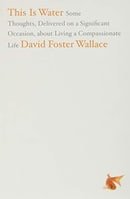
 5
5
 7.5
7.5
 0
0
